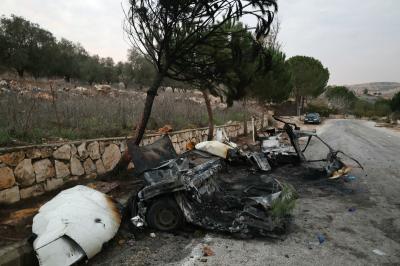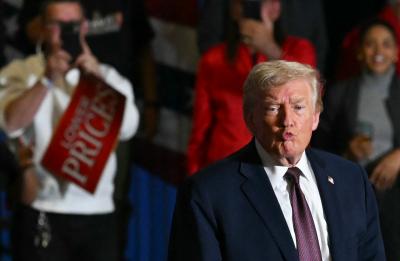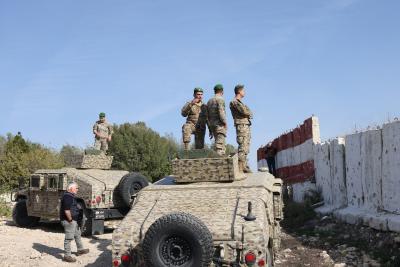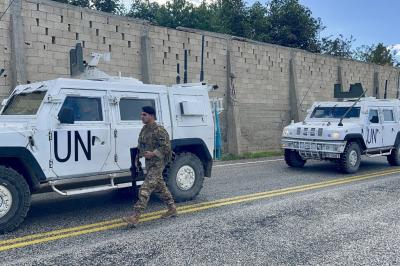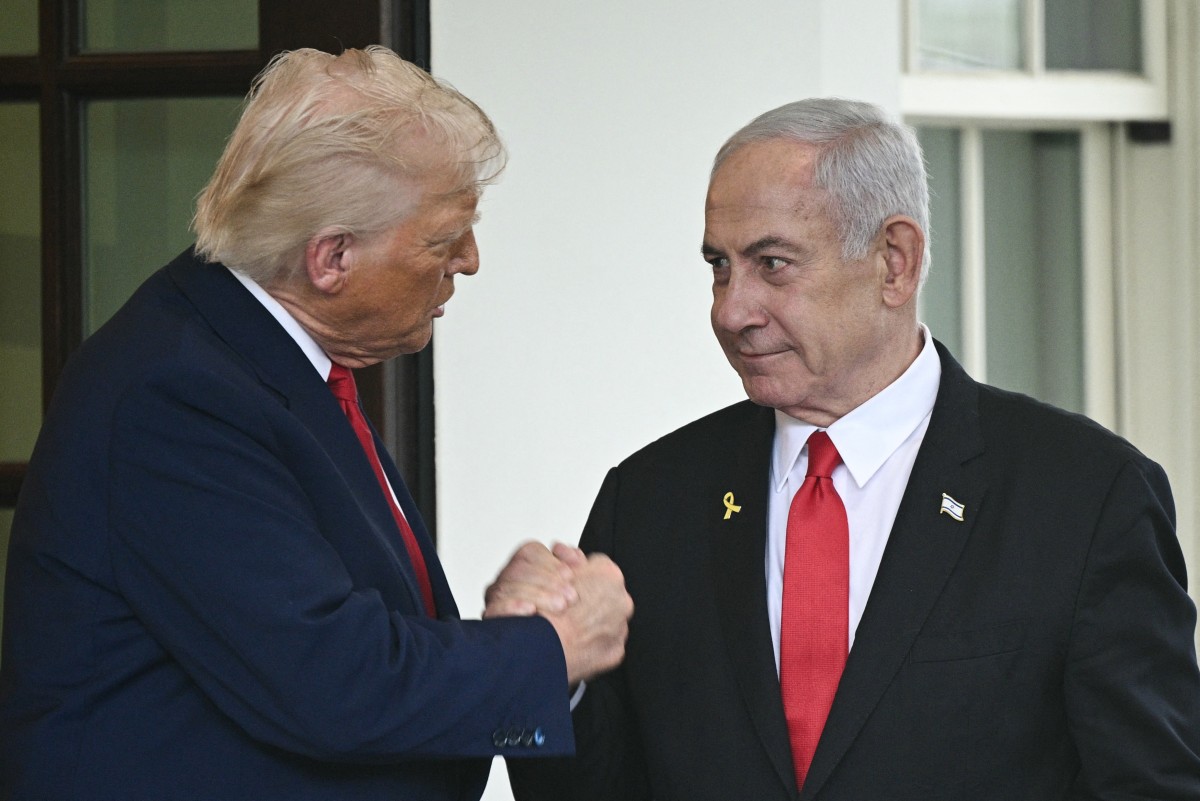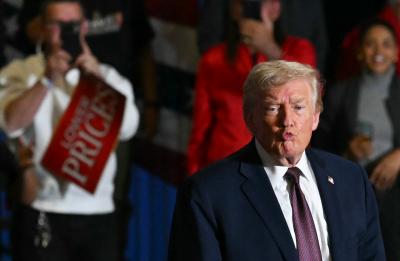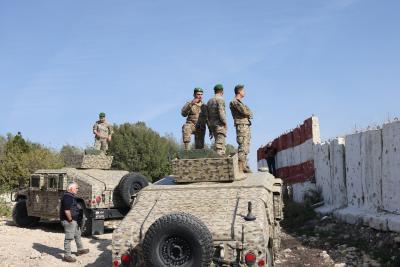Regardless of whether Israel was behind the explosion in the southern Iranian city of Bandar Abbas — not far from the site of nuclear negotiations with Oman — Israeli Prime Minister Benjamin Netanyahu and his circle of extremists are uneasy with the course of those negotiations. They have only reluctantly shelved their long-standing plan to strike Tehran and topple its regime.
The explosion coincided with the third round of negotiations, now entering a complex phase where U.S. and Iranian positions seem to be converging. But not everyone welcomes this progress, least of all Israel, particularly after U.S. President Donald Trump firmly established negotiations as the preferred path, freezing military action despite criticism from hawks within his own administration who lament the absence of a detailed strategy or clearly defined goals beyond preventing Iran from obtaining a nuclear weapon.
For Netanyahu, Trump is missing a historic opportunity. Iran is currently weaker than in the past, following a series of blows to its regional project, what Tehran proudly calls the "Axis of Resistance" spanning Lebanon, Syria, Palestine, Yemen, and Iraq.
What worries Netanyahu and his camp most is that despite its weakened state, Iran has become a nuclear threshold state, capable of threatening Israel, America’s Arab allies, and even Europe, given its stockpile of hundreds of ballistic missiles capable of carrying nuclear warheads — a capability that may not be adequately addressed by the ongoing negotiations. Iran continues operating thousands of advanced centrifuges, expanding underground missile production, and buying time, much like North Korea did, to develop long-range missile and nuclear capabilities, while Washington appears to be repeating the mistakes of former President Barack Obama and his Secretary of State John Kerry.
Netanyahu’s security circles warn that if Israel does not act soon, it will miss a "historic window" to destroy Iran’s nuclear infrastructure. Iran’s economic and social crises, exacerbated by Trump’s maximum pressure policy, offer a unique opportunity. Military assessments suggest that if Iran moves certain facilities underground or accumulates enough 90%-enriched uranium for six warheads, any future strike would become significantly less effective and more costly. A successful strike would require U.S. aerial support and missile defense coverage to absorb Iranian retaliation and deliver a crippling blow from which Iran could not recover.
The growing friction with Washington has prompted American officials to leak Israel’s intentions to U.S. media, although it is widely understood that Netanyahu is deterred by U.S. pressure and cannot act unilaterally.
Between a Preemptive Strike and a Punitive Strike
Still, Netanyahu’s plan remains alive, albeit quietly. Two scenarios are currently under discussion:
- First, a collapse of the negotiations, which could trigger a joint U.S.-Israeli strike, forcing Iran back to talks under harsher terms.
- Second, an interim agreement that freezes Iran’s program without dismantling it — a deal that would merely delay Iranian progress by two years.
In both scenarios, there is no backing down from demands that Iran halt uranium enrichment, cease plutonium production, submit to full disclosures regarding weaponization efforts, and accept strict new international inspections, much stricter than before.
However, neither scenario satisfies Israeli ambitions. Israel and its allies also possess alternative tools: cyber operations like those that disrupted Iran’s program in 2006, and targeted assassinations like the 2020 killing of nuclear scientist Mohsen Fakhrizadeh. Yet such measures are seen merely as stopgaps.
What Israel seeks is a full-scale campaign — military, cyber, and diplomatic — capable of altering Iran’s strategic calculus.
Israeli officials recognize that unless Iran’s nuclear capabilities are completely dismantled, the existential threat will persist — a belief deeply ingrained in Iranian ideology since the 1979 Revolution. Research centers in Israel argue that now is a rare opportunity: Israel has succeeded in breaking the "ring of fire" Iran built around it, which had long prevented direct action against Iran and its nuclear program.
Thus, irrespective of the negotiations, Israel sees an opening for preemptive action. Israeli reports suggest that Trump, despite his declarations against a mere interim deal that would only freeze Iran’s ambitions, much like Obama’s, is repeating similar mistakes. He is not demanding full dismantlement of Iran’s nuclear program, which would only embolden Tehran to extract further concessions through its well-practiced tactic of stalling and offering superficial compromises in exchange for major sanctions relief.
From the Israeli perspective, only military intervention — even unilateral — can halt Iran’s march toward the bomb.
Netanyahu is also pushing the narrative that Arab countries, too, face a direct threat, and that a regional arms race would destabilize the Middle East and risk collapsing the already fragile nuclear non-proliferation framework.
Preparing for unilateral action, Netanyahu is weighing two options:
- A preemptive strike if Iran refuses to cooperate
- A punitive strike if Iran races toward a nuclear breakout
- A preemptive strike would aim to cripple Iran’s nuclear infrastructure — facilities, stockpiles, and key personnel — to paralyze the program for years.
- A punitive strike would target broader assets, nuclear and non-nuclear, to weaken the Iranian regime and send a global message that nuclear proliferation carries devastating consequences.
Of course, any Israeli operation would trigger Iranian retaliation. Still, Israel expects indirect support from allies — in intelligence, logistics, or even limited military coordination — to enhance the strike’s effectiveness and protect Israeli territory. Israel itself is updating its emergency plans accordingly.
Netanyahu is also betting, albeit unrealistically, on internal unrest in Iran leading to the regime’s collapse — a hope that has repeatedly proven futile.
Meanwhile, Netanyahu believes Israel must prepare a strong diplomatic pressure campaign against Iran. He aims to communicate to Washington and other allies a clear set of conditions for any acceptable nuclear deal. He will also remind Washington of its commitments under the 2022 "Jerusalem Declaration" — the U.S.-Israel Strategic Partnership Agreement signed in July 2022, which affirms Israel’s right to self-defense, including unilateral action if necessary, and reaffirms U.S. support for maintaining Israel’s security and deterrence capabilities.
Thus, Netanyahu is keeping all options open, biding his time to strike Iran — even if he must do so without formal announcement.
Please post your comments on:
[email protected]
 Politics
Politics
